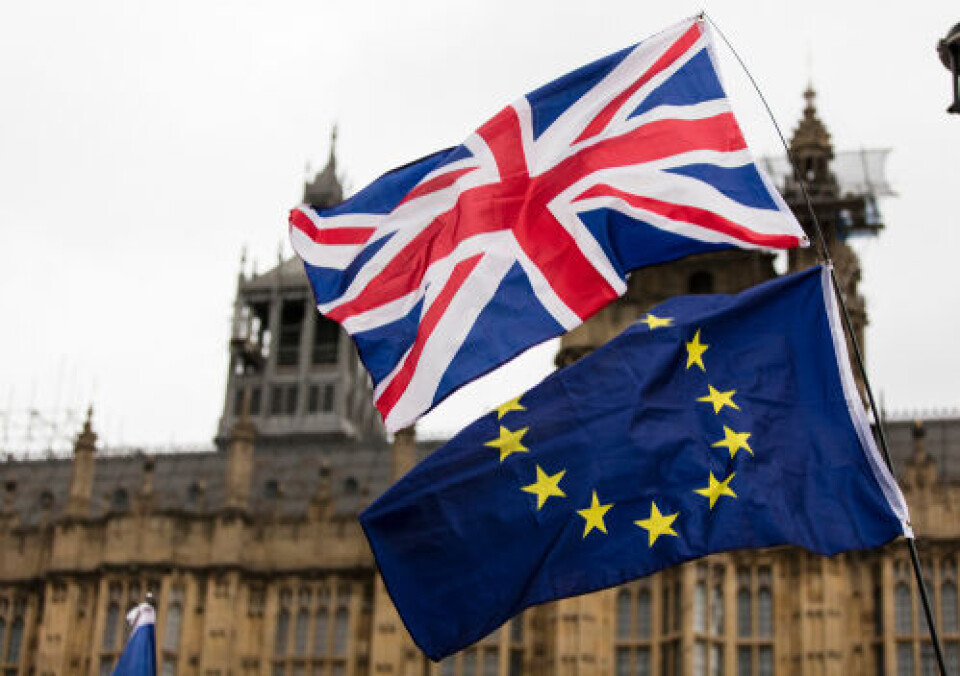-
VPN providers may leave France under pressure from Canal+
The broadcaster is demanding courts order Virtual Private Networks to block access to illegal streams
-
Forgetting luggage on French transport can land you a hefty fine
Fines vary from €72 to €1,500 depending on the level of offence, with 360 items left per week
-
Death of Emile, 2: French prosecutor gives more details after grandparents released
There are several reasons that a third party is suspected of involvement in Emile’s death
Claims that senior UK ministers seeking Swiss-style EU ties denied
PM says he would block any move requiring the UK to align with EU laws

Senior government sources have suggested that the UK should move towards a ‘Swiss-style relationship’ with the EU over the next decade, according to The Sunday Times, although the government has said that it is “categorically untrue” and that no such plans are being considered.
The claim has sparked renewed debate on the future of the UK’s relationship with the EU, coming in a context also in which Chancellor of the Exchequer Jeremy Hunt admitted last week that Brexit had created barriers to trade.
Mr Hunt stated he had “great confidence” that the “vast majority of trade barriers” could be removed while staying outside the EU’s single market, though it would “take time”.
“In private” several “senior government figures” have said a relationship more like Switzerland’s with the EU would be needed for “frictionless” trade, The Sunday Times said.
The sources, however, reportedly still believed this could be done without free movement, although they accepted that the EU would not “offer this upfront” as “they would say you are trying to have your cake and eat it”.
UK Prime Minister Rishi Sunak has denied the plans, saying that "under my leadership the UK will not pursue any relationship with Europe that relies on alignment with EU laws", Switzerland does so in many areas, including regulations on product standards, packaging and labelling. Several eurosceptic politicians have also voiced their opposition to the idea.
Switzerland accepts free movement
Switzerland is part of the EU single market and participates in research and educational programmes but it also accepts free movement of people and pays towards the bloc budget.
Free movement goes both ways, so it also means the Swiss can live, work and retire in the 30 countries of the EEA. It is also part of the Schengen area.
As a result, the EU is Switzerland’s largest trading partner, with exchanges of goods and services amounting to around €1billion per working day and 42% of the country’s exports going to countries in the bloc.
Switzerland is, in turn, the EU’s fourth biggest trading partner, at over 7% of EU exports and 6% of imports.
However such a relationship would mean the UK would have to align with EU laws without any say on them.
Several other non-EU countries, states – Iceland, Norway and Liechtenstein – have ‘frictionless’ trading as members of the European Economic Area (EEA) but all are full single market members with free movement in all areas, including people, goods, services and capital.
While this is a prerequisite for EEA membership, Switzerland has a similar relationship to the EU due to a complex network of treaties.
It held a referendum on continuing free movement in 2020, which voted 62% to keep it.
The European Commission states on its website: “Free movement of persons is a central pillar of our relations with Switzerland, and part of our overall package of ties”.
Switzerland must accept some deals from the EU which involve pieces of legislation it has previously been opposed to, according to the UK in a Changing Europe think tank.
Agreements evolve as EU law changes, and every bill put forward to the Swiss parliament is studied for its compatibility with the bloc’s legislation.
When the option of a Swiss-style relationship was put to British Brexit negotiators, Brussels’ negotiator Maroš Šefčovič said that it would remove the need for documentary and physical checks on red meat, poultry, mince, fish and dairy.
Read also: Number of UK firms exporting goods to EU dropped by a third
Denial from ministers, opposition from eurosceptics
When asked about the Sunday Times report, Health Minister Steve Barclay told Sky News: “I don’t recognise this story at all. I don’t support that. I want to maximise the opportunities that Brexit offers.” A foreign ministry spokesperson added that the reports were “categorically untrue”.
MP and former minister Simon Clarke tweeted: “I very much hope and believe this isn’t something under consideration. We settled the question of leaving the European Union, definitively, in 2019.”
Former Chief Brexit Negotiator David Frost also tweeted: “If this [...] report is correct, I hope the government thinks better of these plans, fast.”
If this @thetimes report is correct, I hope the Government thinks better of these plans, fast. https://t.co/rM9RySmfXB pic.twitter.com/rTaoqfAryu
— David Frost (@DavidGHFrost) November 19, 2022
As is this @FCDOGovUK messaging about the approach on the Northern Ireland Protocol angle, via @MrHarryCole. pic.twitter.com/sB9ZqyKvyS
— David Frost (@DavidGHFrost) November 21, 2022
The UK government is currently in talks with the EU over the Northern Ireland protocol, which authorised checks on some goods entering the devolved nation so that they could then move across the open land border with EU member Ireland.
Polling platform YouGov stated recently that the proportion of Britons who think leaving the EU was the wrong decision is at its highest point since after the referendum at 56%. Some 32% believe that it was the right decision, and the remaining 12% said they did not know.
Related articles
How long can I stay in UK without becoming resident for tax purposes?
Young Brexit agreement Britons facing residency difficulties in France
Paris stock market more valuable than London’s for first time
























